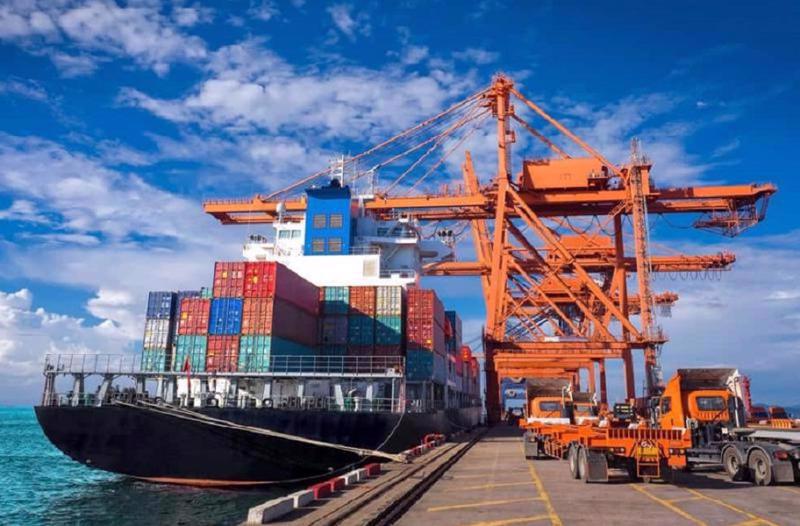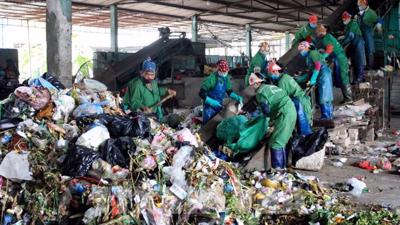Import tax rates to be reduced for improvement of trade environment
Most Favored Nation import tax rates are to be reduced under a proposal from the Ministry of Finance as Vietnam seeks to enhance its trading environment.

The Ministry of Finance (MoF) has proposed adjustments to Most Favored Nation (MFN) import tax rates on ten product groups, in order to create a more balanced and fair trading environment with Vietnam’s Comprehensive Strategic Partners.
To navigate the evolving and unpredictable global geopolitical and economic landscape, where shifts in economic, trade, and tariff policies are creating swift and profound ripple effects on global investment and commerce, including in Vietnam, the Prime Minister issued Directive No. 06/CT-TTg on March 10, under which the MoF is tasked with urgently proposing amendments to Decree No. 26/2023/ND-CP, dated May 31, 2023, to adjust tax rates on selected product groups. The goal is to strike a balance between economic priorities while ensuring a streamlined approval process, with completion set for March.
New context
Among the key updates, tax reductions are set to be applied to ten product categories. According to Mr. Nguyen Quoc Hung, Director of the Department of Management and Supervision of Tax, Fees and Charges Policies at the Ministry of Finance (MoF), the proposed decree is designed to enhance Vietnam’s trade balance, encourage businesses to diversify their imports, and stimulate consumer demand. Just as importantly, it prioritizes simplicity and clarity, making compliance easier for taxpayers while fostering a more dynamic market environment. “The guiding principle in drafting the decree is to ensure compliance with the tax rate provisions outlined in the Law on Export and Import Duties,” he said. “The adjustments to import duties will apply to goods that are not yet produced domestically or those that are produced but are insufficient to meet demand.”
He further explained that the draft decree focuses on adjusting import duties for high-value imported goods that are of interest to trading partners. The revised tax rates will generally not be lower than those stipulated in Vietnam’s free trade agreements (FTAs). Additionally, adjustments will not introduce new tax rate categories in the tariff schedule. The aim is to maintain uniform tax rates for goods of similar nature and category, preventing trade fraud and minimizing difficulties in classification and tax assessment.
The world’s economic and political landscape is shifting rapidly, with major changes in trade policies and tariffs. These shifts present significant challenges for Vietnam’s economy, requiring the government to respond with agility and strategic adjustments.
Directive No. 06 outlines key priorities and solutions to help Vietnam proactively navigate global and regional developments. As part of these efforts, the government has directed the MoF to urgently revise Decree No. 26 on MFN import tax rates, ensuring a more balanced and rational approach. The process is set to be completed within March under an expedited timeline.
In a discussion with the media, Mr. Hung highlighted the significance of this MFN tax adjustment in strengthening Vietnam’s trade ties with its Comprehensive Strategic Partners, particularly the US.
Vietnam and the US signed a Bilateral Trade Agreement in 2001, but the absence of a dedicated FTA means US exports to Vietnam still face MFN tariff rates rather than preferential treatment. The Comprehensive Strategic Partnership represents the highest tier of diplomatic and economic relations, built on long-term mutual interests, support, and collaboration across multiple sectors.
The Comprehensive Strategic Partnership between Vietnam and the US was established on September 11, 2023. However, without a bilateral FTA, US imports remain subject to MFN tariffs, which apply equally to all WTO members. This creates a competitive disadvantage for US goods compared to those from countries that already have FTAs with Vietnam.
Beyond the US, Vietnam has Comprehensive Strategic Partnerships with eleven other countries, including China, Japan, South Korea, Australia, Russia, India, France, Singapore, Malaysia, Indonesia, and New Zealand. Ensuring fairness in tax policies across these key trade partners is essential.
With the government’s directive in place, the MoF has underscored the need to adjust MFN import tax rates for select goods to ensure fair treatment for Vietnam’s Comprehensive Strategic Partners.
The draft decree proposes reductions in Most Favored Nation import tax rates for the following product groups:
- Automobiles under three HS codes (8703.23.63, 8703.23.57, and 8703.24.51) reduced from 64% and 45% to a unified rate of 32%;
- Ethanol from 10% to 5%;
- Frozen chicken legs from 20% to 15%;
- Pistachio nuts from 15% to 5%;
- Almonds from 10% to 5%;
- Fresh apples from 8% to 5%;
- Sweet cherries from 10% to 5%;
- Raisins from 12% to 5%;
- Wood and wooden products under HS Groups 44.21, 94.01, and 94.03 from 20% and 25% to a unified rate of 5%;
- Liquefied natural gas (LNG) from 5% to 2%; aith a 0% tax rate; and
- Ethane is also proposed to be added to Chapter 98, with a 0% tax rate.
The revised tax rates will generally not be lower than those specified in the FTAs to which Vietnam is a signatory. The decree also ensures that no new tax rates are introduced in the tariff schedule and that uniform tax rates are applied to goods of the same nature and category. This aims to prevent trade fraud and minimize challenges in classification and tax calculation."
Mr. Nguyen Quoc Hung, Director of the Department of Management and Supervision of Tax, Fees and Charges Policies, Ministry of Finance







![[Interactive]: Economic overview - April 2025](https://media.vneconomy.vn/400x225/images/upload/2025/05/06/5a245778-67b1-4874-a8dc-21f8cfed62a6.png)